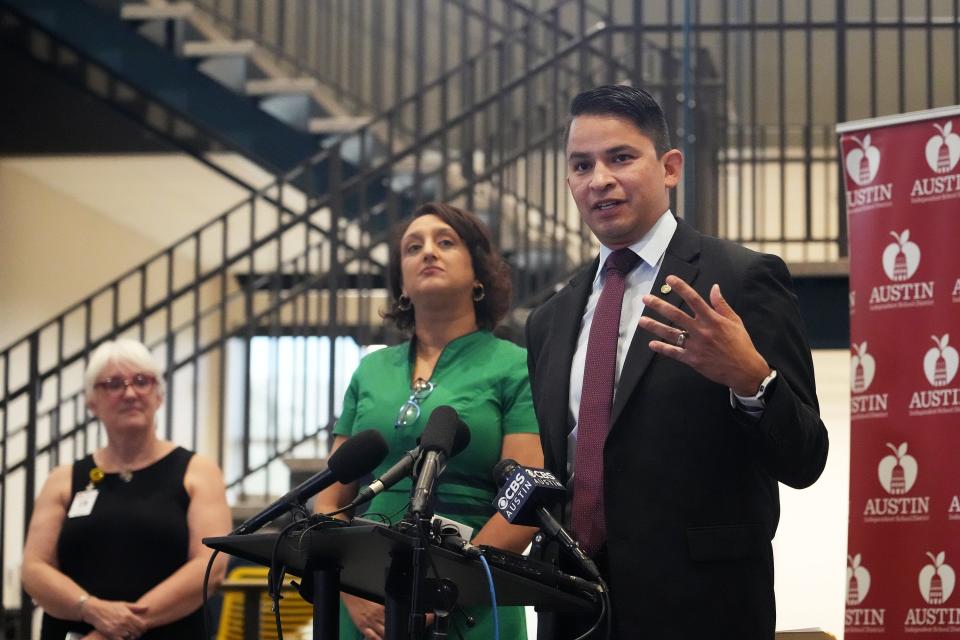Austin school district reduces backlogged special education evaluations by almost 83%
Since January 2023, the Austin school district has reduced its years of backlogged special education evaluations by almost 83%, putting a dent in the overdue assessments that spurred a federal lawsuit by a disability rights group and brought the district under state-sanctioned oversight.
Officials who presented the special education evaluations data at a school board meeting Thursday attributed the drastic drop in overdue assessments to increased staffing, district culture shifts and an around-the-clock evaluation schedule.
To cut the backlog of evaluations, district staffers have been assessing students any chance they get, including on weekends, over the summer and on holidays, said Jennifer Baker, interim executive director of compliance and evaluations.
While that’s not a sustainable practice long term, it must be done to catch students up, she said Thursday.
Between January and Dec. 18, 2023, the district’s past due evaluations dropped from 1,780 to 306, according to district data.

Federal law requires districts to test students if their parents or school staffers suspect they might need special education services, such as weekly time with learning coaches or other accommodations. Districts must complete that assessment within 45 days of a parent consenting to have the child evaluated.
Austin school officials have blamed the yearslong delays on the COVID-19 pandemic and systemic failures. Disability Rights Texas filed a lawsuit in 2021 against the district over the delays. The lawsuit alleges that the district has a history of understaffing school psychologists and falling behind on evaluations, both for students seeking new services and for students receiving services who are required to be reevaluated every three years.
In March, the Texas Education Agency announced its investigating arm had recommended state action against the district for the backlog. TEA investigators suggested placing a conservator over the district — a type of oversight that keeps the district’s board and leadership in place but relinquishes control of its special education decision-making to a state appointee.
Austin officials avoided such action by agreeing in September to an order that holds the district to strict timelines for completing overdue evaluations and requires the board to overhaul how it spends its time in public meetings. The state appointed two monitors to oversee the district’s progress.
Of the 306 evaluations that remained past due as of Dec. 18, only 14 are for students getting their first special education assessment, according to district data. The other 292 are reevaluations for students who already receive services but might need more or different assistance.
“That's kind of a new milestone,” board Vice President Kevin Foster said. “I've always been worried about the alchemy that allows us to find the balance of catching up on the old and keeping up with the new.”
The district, though, still faces significant challenges, said interim Superintendent Matias Segura.
Last year, the board approved a 7% raise for staff members and stipends of up to $7,000 for those with special education or bilingual certifications. However, the district has still had a hard time finding qualified employees to serve students with special needs, Segura said.
“You may see us coming back to you with some creative solutions or incentive programs to help really attract those positions,” Segura told board members.
Some of those solutions could be expensive, he said.
The district is also facing challenges with recruiting bilingual evaluators, said Baker, the interim compliance and evaluations director.
Many evaluators have only a year or two of experience, so the district has been creating training groups to teach staff members about writing evaluation reports and communicating clearly with parents, she said.
District officials noted that they still need to work on making sure students who are evaluated have all the resources they need to be successful. The district is also undergoing an audit of its special education services.
This article originally appeared on Austin American-Statesman: Austin school district reduces overdue special education evaluations

